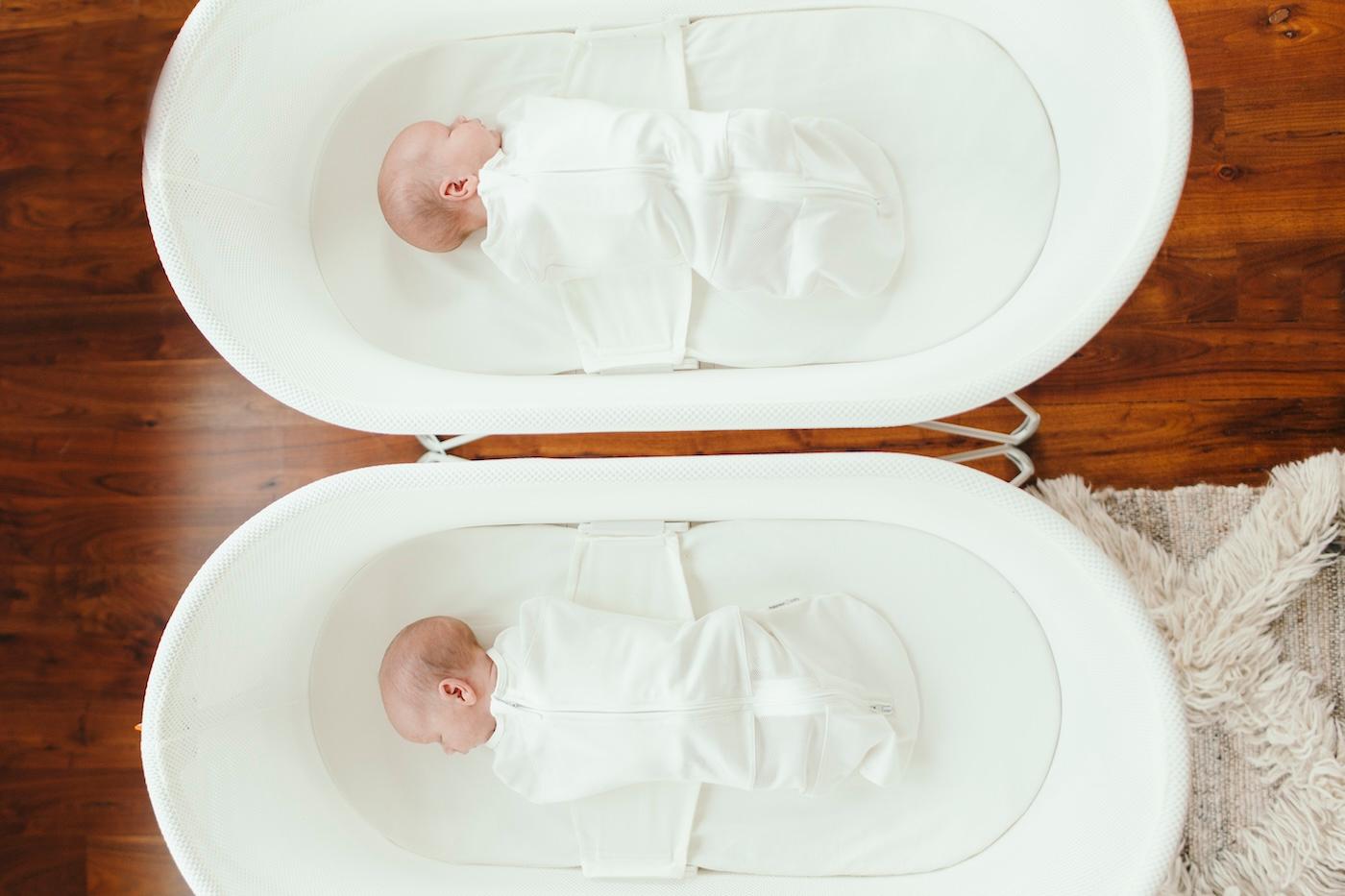PREGNANCY
30 Strong Arabic Baby Names
If you are looking for a unique baby name with a beautiful sound and special meaning, our list of Arabic baby names is a great place to start.

Written by
Happiest Baby Staff

Arabic is spoken by more than 400 million people worldwide and is the official language of 22 sovereign states...not to mention the influence of Arabic echoes through lots of other languages—and it is also the basis for some amazing baby names! Any of these traditional Arabic baby names will definitely set your sweet boy or girl apart. These Arabic baby names have both strong meanings and lovely-sounding cadences...they’re a beautiful way to pay tribute to your roots or simply nod to a part of the world that has relevance for your family.
Arabic Names for Boys
Abdul: This well-loved Arabic boy name means 'servant of.'
Achmed: Achmed has a bold sound and a beautiful dual meaning: 'highly praised,' or 'one who constantly thanks God.'
Cairo: This hip 'place name' is the capital of Egypt and also a popular Arabic baby name.
Fayez: A powerful sounding Arabic baby boy name that translates to 'victorious.' We also love Fez as a super-cute nickname for a young boy named Fayez.
Galel: This boy’s name also has Hebrew roots, giving this unique Arabic name pan-cultural appeal. Galel means 'the wave of God' and would also make a lovely middle name choice.
Hamid: Al-Hamid is one of the 99 names of Allah, and this well-liked Arabic name meaning 'praised' would be a beautiful choice for a son to carry on the culture.
Jamal / Jamar: We did not want to pick between these similar-sounding but equally adorable names. Jamal means 'beauty' and Jamar, 'sparks,' so whichever ending sound and meaning resonates more with you, either of these popular Arabic boy names is a great choice.
Khalid: One of the better known names on our list of Arabic baby names thanks to the music giant DJ Khaled, this name with either spelling translates to 'eternal.'
Malik: This Arabic name for boys means 'king' or 'wave' and is a very sweet pick for a baby.
Mohammad: The biblical name is very popular throughout the Middle East and also in the UK. Whichever spelling you go with (Mohammad, Mohammed, Muhammad), you cannot go wrong when naming your little guy after the prophet.
Omar: We love the simplicity and openness of this sweet Arabic boy name. Omar means 'eloquent' and is of mixed Hebrew and Arabic origins.
Rashid: Meaning 'rightly guided,' this smart baby boy name is a popular choice in Arabic-speaking countries.
Salem: It is no surprise that this soothing baby name from the Arabic and Hebrew means 'peace.' It can technically be used for a boy or girl but is more widely thought of as a boy name in the Middle East and surrounding areas.
Arabic Names for Girls
Aisha / Ayesha: We had to provide both beautiful spellings of this popular Arabic girl name meaning both 'woman' and 'life.' Aisha was a wife of the prophet Mohammed, giving clout to this pretty pick.
Anila: This lovely moniker for girls translates to 'inexperienced, raw.' We can see it with a few pretty nickname choices including Annie, Nila, or Nini.
Bisma: A more unique Arabic baby name, the Muslim baby girl name meaning 'politely' is widely used in other parts of the world and would be a special pick for your daughter.
Farah: This beautiful Arabic name is a popular choice for parents for many reasons—one being the iconic ‘70s star and another being its hopeful meaning: 'happiness.'
Fatima: One of the known popular Arabic baby names, Fatima means 'one who wears a baby' and lends easily to sweet nicknames Fati, Tima, and Ema.
Hiba: This gorgeous and unique Arabic name meaning 'gift' is a very cool baby name to consider.
Khadija/h: Another of Mohammad’s wives and also a stellar pick with plenty of nickname options (Katie, Khada, Didi, Dija), it means 'premature child.'
Kinza: A gold-edged name for a baby girl, this one stems from the Arabic word 'kinz' which means 'hidden treasure.' It has major connotations of wealth and prosperity, and we are here for it!
Maha: The stunner of a baby girl name meaning 'beautiful eyes' (but also, 'wild cow') is often found in Arabic poetry.
Nadia: It is more widely used in the West than many on this list, but Nadia still feels special. Also known for its Russian roots, the Arabic meaning of Nadia is 'tender and delicate;' it is an offshoot of the girls’ name Nada, which means 'dew.'
Rimsha: We love how unique this one sounds, and also its multiple Islamic meanings which include 'beautiful' and a 'bunch of flowers.'
Saba: The Muslim baby name meaning 'eastern wind' is a lovely choice for a modern baby girl.
Zoya: There is something special about Z names, and this one is no exception. Zoya means 'loving and caring' in Arabic and also shares roots with the Greek, and as a Russian/Ukranian version of Zoe, where it means 'life.'
Gender-Neutral Arabic Names
Amal: It is a popular pick throughout Arabic-speaking countries and this unisex baby name means 'hope' or 'aspiration.'
Ehsan: The Arabic boy name is picking up popularity with little girls as well; it means 'perfect' or 'excellence' and lends easily to boy nickname Sonny and girl nickname Ehsa.
Iman: A gender-neutral name that has historically been given more to girls but is experiencing a bit of a crossover with modern parents, Iman means 'faith' and your child would be in good company if given this name, that the international superstar model Iman is known by—no last name needed!
Nakia: The gender-neutral Arabic baby name translates to 'pure' in that language, and means 'pure and faithful' in Egyptian, for a beautiful and unique choice your little one will be proud to grow into.
Beyond Arabic Baby Names:
There is a whole wide world of baby name inspiration out there! Some of our other favourite names include…
- Biblical Baby Names
- Brazilian Baby Names
- British Baby Names
- Chinese Baby Names
- French Baby Names
- German Baby Names
- Greek Baby Names
- Hawaiian Baby Names
- Irish Baby Names
- Italian Baby Names
- Japanese Baby Names
- Korean Baby Names
- Mexican Baby Names
- Nature Baby Names
- Old-Fashioned Baby Names
- Southern Baby Names
- Spanish Baby Names
- Twin Baby Names
Disclaimer: The information on our site is NOT medical advice for any specific person or condition. It is only meant as general information. If you have any medical questions and concerns about your child or yourself, please contact your health provider. Breastmilk is the best source of nutrition for babies. It is important that, in preparation for and during breastfeeding, mothers eat a healthy, balanced diet. Combined breast- and bottle-feeding in the first weeks of life may reduce the supply of a mother's breastmilk and reversing the decision not to breastfeed is difficult. If you do decide to use infant formula, you should follow instructions carefully.
SHARE THIS ARTICLE
PARENT PICKS
Bestsellers



















